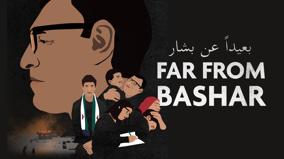New release
Coming
None
Band of Exiles
1994
58 min
Leaving soon
Here in Toronto, four young Somali refugees are finishing high school. What did they bring with them? What did they find in Canada? Their testimonies, about us and about themselves, interspersed with newsreel footage and sequences of a theatrical creation in which they put all their soul, make them immediately endearing and overturn many prejudices held against refugees. A film that makes you want to get to know them better.

Details
Here in Toronto, four young Somali refugees are finishing high school. What did they bring with them? What did they find in Canada? Their testimonies, about us and about themselves, interspersed with newsreel footage and sequences of a theatrical creation in which they put all their soul, make them immediately endearing and overturn many prejudices held against refugees. A film that makes you want to get to know them better.
-
directorYves Bisaillon
-
scriptYves Bisaillon
-
producerAlan Collins
-
executive producerAlan CollinsMikale-Andrée Joly
-
editingAlan Collins
-
sound editingAlan Collins
-
line producerLucie Amyot
-
photographyPhilippe Champion
-
soundStuart French
-
musicPhilippe Lapointe
-
participationFuaad KaamilIfrah HashiFaiza IsmailYusuf IbrahimGilles VigneaultIdriss Ahmed
















